#william collingbourne
Text
The Catte, the Ratte and Lovell our dogge rulyth all Englande under a hogge
- The Cat, Rat & The Dog By:
William Collingbourne
0 notes
Text
The Catte, the Ratte and Lovell our dogge.
The Catte, the Ratte and Lovell our dogge.
The Catte,
The Ratte,
And Lovell our dogge;
Rulyth all Englande under a hogge.
*****
A poem by Sir William Collingbourne who was later executed for his support of the Tudor House.
https://chattering-magpie-uk.tumblr.com/post/682337729485340672/the-catte-the-ratte-and-lovell-our-dogge
View On WordPress
0 notes
Note
Ooh, I didn't know Cecily was friendly with Henry Tudor? Do you think that's particularly telling about her relationship with Richard, or was it just pragmatist on her part, to make nice with the new regime?
Hi, anon! I think you're referring to what I said here. I don't know if we can classify her actions as 'friendly' as much 'well-disposed' towards Henry VII, that is, not bearing any ill will. Besides the use she made of Henry's trusted servants and the stuff she left for him in her will, we also know there's no proof that she ever aided Henry's enemies or lent a hand to her daughter Margaret's endeavours to unseat him— and as the rich dowager duchess of York her help could be considerable. Henry VII in his turn might have been friendly towards her: we know he paid her minstrels at least once, probably on an occasion when the duchess was present for the celebrations. That Cecily left some of her religious books to Margaret Beaufort might also explain the friendly dynamic that the new royal family was able to establish.
That said, I don't know much about Cecily, I haven't researched her that well. I read once on a blog somewhere (and they gave no sources for that claim) that after her death some of her servants joined some conspiracies against Henry VII. I think it speaks volumes that they waited until her death to turn against the king though, doesn't it? It also couldn’t imply any personal animosity towards Henry VII, considering that one of Cecily’s servants, William Collingbourne, rose against her own son Richard III in 1484. The fact is that Cecily styled herself as 'the queen's grandmother' during Henry VII's reign and I think that speaks for Elizabeth of York's position of prestige more than people realise.
As to her relationship with Richard III, it’s all very nebulous. Richard III committed his coup whilst lodged in her London residence of Baynard's Castle, but it's interesting to notice that she stressed in her last will that Edward IV was indeed the son of her husband the Duke of York, emphasising to the very end that she had not committed adultery despite the rumours that her son George, and later possibly Richard, spread or suggested.
I, Cecily, wife unto the right noble prince Richard, late Duke of York, father unto the most Christian prince my Lord and son King Edward the iiiith, the first day of April the year of our Lord 1495 [...] make and ordain my testament in form and manner ensuing.
I know there are some who don't believe that Richard (like his brother George) suggested Edward IV was illegitimate even though it was mentioned in Mancini's contemporary report detailing Richard III's usurpation. They claim that Mancini was simply anti-Richard III (even though Mancini was also anti-Woodville by the same logic). It might be that Mancini was only repeating the rumours that had been circulating since George’s time and Richard had nothing to do with them, but it is undeniable that the bastardy suggestion is also implicit in the Titulus Regius declaration stating Richard III's right to rule:
[...] we consider how you are the undoubted son and heir of Richard, late duke of York, very inheritor of the said crown and dignity royal … and how you were born within this land.
It seems Cecily did not hold it against him at the time though, considering Richard had been lodged in her residence. He also visited his mother in Berkhamsted in May 1485 and may have stayed with her for a few days. She either didn't hold it against him — perhaps his allegations were all too subtle to cause offence, perhaps he claimed or pointed out that other people have been spreading those rumours, not him — or perhaps she felt like she had no choice but to follow her familial duty to support him. In that same way, Cecily may have felt she had no choice but to follow her familial duty to support her granddaughter Elizabeth and, by extension, Henry VII. However, she could have supported the rebellion that meant to crown the son of her other son George, Edward of Warwick, or she could have offered to lend her credence to Perkin Warbeck’s story like her daughter Margaret did, yet she did not.
23 notes
·
View notes
Text
87% off #Learn To Program JavaScript (in ten easy steps) – $10
The simplest way to learn to program JavaScript – the language of the web.
Beginner Level, – 5.5 hours, 44 lectures
Average rating 4.8/5 (4.8 (79 ratings) Instead of using a simple lifetime average, Udemy calculates a course’s star rating by considering a number of different factors such as the number of ratings, the age of ratings, and the likelihood of fraudulent ratings.)
Course requirements:
You will need a web browser and a code editor (suitable free software is suggested in the course)
Course description:
Learn To Program JavaScript (in ten easy steps) is suitable for beginner programmers. Step-by-step it explains how to write JavaScript code to run in a web browser on Windows, Linux or Mac OS X.
JavaScript is the language of the web. If you need to program web sites to run on desktop computers or mobile devices, you have to know JavaScript.
This course explains all you need to know in order to write JavaScript and make sense of other people’s JavaScript code. Every step of the way you can follow along with ready-to-run code in in short, easy-to-understand JavaScript programs.
You will begin by learning the core features of programming – variables, functions and data types. You will move on to learn about specific capabilities of JavaScript – how to use it to automate web pages, hide email addresses, swap stylesheets interactively; how to load XML data to create so-called AJAX applications, how to animate images and use some of the drawing capabilities of HTML5.
The sample projects are all provided ready for you to download, run and modify. The course also includes a course eBook, The Little Book Of JavaScript, that provides even more information on the topics being discussed.
The course instructor,Huw Collingbourne, is Director of Technology with SapphireSteel Software, a company that specialises in Visual Studio development tools for professional programmers. Founder of Bitwise Courses – producers of multimedia instruction courses – Huw is one of the top-selling programming instructors on Udemy,.
Learn To Program JavaScript (in ten easy steps) is the fastest and simplest way to learn to program web pages like a pro.
Full details
You will learn to program JavaScript from the ground up
Source code archive contains all sample programs
Course eBook has ten chapters – one for each of the ten steps
Newcomers to JavaScript programming
Beginner web developers
Anyone who needs to learn JavaScript quickly
Reviews:
“Great Review as I have studied several times in the past.
You did good examples on all lessons on each chapter! Thank you.” (Don Ames)
“The audio is low when playing on my laptop, and I have to turn many programs down that I run. Otherwise, It’s been a good refresher so far.” (William Lowry)
“Great into course with lots of example code and walkthroughs for you to manipulate and or follow along to learn JS basics.” (Adam Abbott)
About Instructor:
Huw Collingbourne
Huw Collingbourne is the technology director at SapphireSteel Software, developers of the “Sapphire” Ruby IDE for Visual Studio and the “Amethyst” IDE for the Adobe Flash Platform. He is author of The Book Of Ruby from No Starch Press. He runs Bitwise Courses and teaches courses on a range of programming topics.
Huw has been a programmer for more than 30 years. He is a well-known technology writer in the UK. For over ten years he wrote the Delphi and Java programming column for PC Plus Magazine. He has also written numerous opinion and programming columns (including tutorials on C#, Smalltalk, ActionScript and Ruby) for a number of computer magazines, such as Computer Shopper, Flash & Flex Developer’s Magazine, PC Pro, and PC Plus. He is the author of the free ebook The Little Book of Ruby and is the editor of the online computing magazine Bitwise.
In the 1980s he was a pop music journalist and interviewed most of the New Romantic stars, such as Duran Duran, Spandau Ballet, Adam Ant, Boy George, and Depeche Mode. He is now writing a series of New Romantic murder mysteries.
At various times Huw has been a magazine publisher, editor, and TV broadcaster. He has an MA in English from the University of Cambridge and holds a 2nd dan black belt in aikido, a martial art which he teaches in North Devon, UK. The aikido comes in useful when trying (usually unsuccessfully) to keep his Pyrenean Mountain Dogs under some semblance of control.
Instructor Other Courses:
The Lone Video-maker’s guide to making videos at home Huw Collingbourne, Director of Technology, SapphireSteel Software (12) $10 $55
Ruby For Programmers
Java Programming – the Master Course
……………………………………………………………
Huw Collingbourne coupons
Development course coupon
Udemy Development course coupon
Web Development course coupon
Udemy Web Development course coupon
Learn To Program JavaScript (in ten easy steps)
Learn To Program JavaScript (in ten easy steps) course coupon
Learn To Program JavaScript (in ten easy steps) coupon
coupons
The post 87% off #Learn To Program JavaScript (in ten easy steps) – $10 appeared first on Course Tag.
from Course Tag http://coursetag.com/udemy/coupon/87-off-learn-to-program-javascript-in-ten-easy-steps-10/
from Course Tag https://coursetagcom.tumblr.com/post/161138738668
0 notes
Text
Brits Abroad
The train journey from Varanasi to Kolkata is a long one, about 20 hours in the end. My peaceful sleep is interrupted when we pull into an unknown station and what seems like a riot of a hundred or so young men join the carriage. They fill the aisle and jostle for space to lie down. I soon find one stretching out at the end of my upper bunk, my legs squeezed behind him. I’m inclined to object, to insist on seeing his ticket, to relegate him to the uncomfortable aisle-sleepers below. But from a glance up and down the carriage it seems this is fairly normal practice and certainly in keeping with the lack of regard for personal space that seems to unify India. There are just too many people. We settle into some sort of arrangement and await the morning sun, await the first signs of Kolkata. What awaits is a lesson in international relations. It starts with the cricket. Watching India and England in the final One Day International at Eden Gardens is like no other sporting spectacle. With Soph's train from Khajuraho delayed by the customary five hours, we reach the top of the gangway just as the first ball is bowled. We take our seats next to Tim and Lesley, friends from home, and catch up on news as the drama unfolds before us. The atmosphere rivals that of the English Premier League but there are no irksome louts here, only fans of good cricket, all mixed together. Our Indian neighbours are more into friendly banter than expletive ridden abuse. As we rise to cheer another English boundary, I turn to see a homemade banner being waved in response. “BREXIT”. Our tickets for the match are a gift from Ghayas Khan, a Kolkatan who arrived in Wiltshire some 15 years earlier to play for the Collingbourne cricket team. He settled straight into village life, staying with local families, working at the Indian restaurant and helping the club secure a league title. Back in his home city Ghayas proves the ultimate host treating us to several meals with his family as well as the cricket. With the Indian batsmen chasing an improbable target the crowd reach fever pitch as MS Dhoni walks to the crease but they also cheer Ben Stokes each time he returns to his fielding position. He responds with a waggle of the head. India need a six from the final delivery and part of me longs for the ball to sail over our heads just so I can experience the reaction. It's not to be. An eerie hush descends upon the stadium as the ball flies past the bat and England secure the win. There are plenty of other Brits in Kolkata. We stumble across William Dalrymple discussing his new book, Kohinoor, with co-author Anita Anand. We enjoy a welcome reunion with my mum and various other textile enthusiasts as they explore the fabrics of West Bengal. We gather a sense of regional politics from Jon Ellis, a friend of my parents and founder of several schools to the north of the city. The Victoria Memorial tells of those who came before us. The British connection with Kolkata was formalised in the 18th and 19th Centuries when it served as the capital first under the East India Company from 1793 and then under the British Raj from 1858. Many Kolkatans were forced into servitude, uprisings were brutally quashed, Bengal was divided. Sometimes, with the dark cloud of colonial history casting its shadow, I feel we’re too indulgent. We muddle our way between the bewildering exhibits at the Marble Palace and the poetic musings of Tagore House. We mix with elites at the Bengal Club and seek out a leisure complex to watch the underwhelming La La Land. As in New Delhi and Jaipur and Varanasi it’s impossible to ignore the destitution but I still struggle with an appropriate response. A semi-conscious man with a blackened face lies in shredded clothes by the main road attracting little more than a glance from those passing by. At first I also pass. But then I return and leave a 20 rupee note tucked under a bottle of water and wonder whether he is awake enough to make use of it. I wonder whether someone will take it for themselves as soon as I walk on. I wonder what everyone else makes of such an act. So often I am uncertain how to act. Do I do things for the right reasons? Do I really have a sense of what would be most helpful? Do I understand all the possible repercussions? Even Mother Teresa, synonymous with Kolkata and helping its impoverished masses, has her critics. When we find one of the dazed locals in Sudder Street being slapped and pushed to the ground I can't help but intervene. A group of irate women push me aside. “You don’t understand” they tell me before starting again on the helpless man. He has blood oozing from a knife wound to his neck and there��s a strong smell of alcohol as he tries to explain something. His eyes are vacant and empty. I tell him to move away but he keeps stumbling back intent on further damage. I plead with the policeman watching on from his motorbike. “Can't you do something?” He shrugs and moves on. Minutes later I do the same.
0 notes
Text
While Gerv beavers away...
... on Ordinary Time, here’s something from him, with my not altogether enthusiastic assistance, from a mite back. Mil SciFi. Believe it or not.
If you want it in PDF, have at it.
Over the hills and far away
GMW Wemyss with Markham Shaw Pyle
RAdm Lord Tisbury RN(Ae) sat very still, as if graven in stone. Within the next three minutes and forty-nine seconds, he must give, or decline to give, an order long in contemplation.
Time enough for memory to flare: and not, he suspected, in his mind alone, but in the minds of everyone aboard HMSS King William VI and all the vessels in the Fleet. (He thought with sudden fierce affection of his old command, HMSS Keyes, now commanded by that sound young lady Captain Mirza.)
His was a family with a strong Naval tradition on Earth. When the Contact had occurred, his great-grandfather and great-uncles several times over had been serving Naval officers, like so many Collingbournes before them. (It was traditional that if two sons were serving at once, they were distinguished as ‘Collingbourne Ducis’ and ‘Collingbourne Kingston’: a tradition no longer much in use, in light of the peerage of some generations prior.)
And there was little on Earth which was more persistent than tradition, in its way....
RDML:SP Bobby Fitzhugh Byrd, commanding USSS Halsey, was alert to what must, surely, be going through Jack Tisbury’s mind over in Billy Six. A lean, languid, aristocratic Virginian, the Rear Admiral had a certain sympathy for the British, mixed, as it had for generations been mixed, with an atavistic sense almost of resentment. Americans even now weren’t altogether used to being part of the Commonwealth – as a nation, emphatically not a realm – or, even more so, to being the junior partners in the Special Relationship, so far as that existed any longer. (That Downing Street crack about repayment at last for Tube Alloys hadn’t gone down right well in Washington, either.)
Of course, thought ‘Miz Roberta’ (as she was affectionately – if never, wisely, in her hearing – called by her subordinates), that was another consequence of the Contact. Everyone since had, whatever their private views of the Limeys, adopted their term for the extraterrestrials: ‘the Sods’.
For a good three centuries now, everything on Earth had been a consequence of the damn Contact.
BG Frank Meusebach USSMC had his own nicknames, of which the most affectionate and printable was ‘Don Paco’. The most durable, too: that one had followed him from the high school baseball diamonds of Comal County and New Braunfels to the Academy and beyond; and for all his father’s German ancestry and Texas Hill Country genes, his mother’s looks had been passed on to him enough to more than justify the nickname. In this regard as in most others, he was almost stereotypical of a Marine officer – space or not – and a long, tall Texan: a fact of which he took shameless advantage.
He, too, was contemplating the factors which must be being weighed by the Task Fleet Admiral. There’d been a hell of lot of learning to do since the Contact, and a hell of a lot of relearning, and, mostly, a hell of a goddamn lot of un-learning. Not least of ranks and organisation, tactics, strategy, and the operational art.
But, hell, it’d been a Brit who’d said, in the Early Old Modern, that the prospect of bein’ hanged in a few weeks concentrated the hell out of a man’s mind.
It all came, reflected Lord Tisbury, of the unexpected fact that the Sods had taken strong objection to Bach. That bloody probe and its damned Golden Record....
It had wanted a good long bit of thinking to understand – so far as one could even yet understand – the Sods. They’d been alarmed and enraged by Bach. (Trust the ruddy Jerries: bad enough they’d gone to war in the Early Old Modern over Brandenburg; but to have produced a genius whose unexpected legacy should be a war over the Brandenburg Concerti....) They’d not much liked Mozart or Beethoven, either; although the Commonwealth and its Associated Powers (mainly China) had learnt the hard way, in PSYOPS since, that they actually seemed to like Chuck Berry, even when blasted interminably at them at high volumes. (Thank God for pipers, and particularly for Gurkha pipers, thought Lord Tisbury: the Sods had soon learnt to dread that.)
The pieces of the puzzle had come together slowly. Understanding xenopsychology was at its best something of a hiding to nothing, really. Odd bods, the Sods – and not only physically (convergent evolution could do only so much, and he did rather wonder if their evolved bodily asymmetry hadn’t helped to make them obsessed with maths even as they resented symmetries).... They’d appeared unheralded, the Sods, popping out of nowhere; and had struck. And where they’d struck had been, in the end, instructive, an important piece of the puzzle. They’d clearly taken their time, and, lurking, planning, had listened in on Earth communications (God help them: adverts and party political broadcasts and boy-bands...). And had then chosen their targets and descended suddenly upon unsuspecting humanity, with bolts from the blue. (Quite literally so: kinetic weapons launched from Low Earth Orbit.) The Americans had lost several cities, in their heartland; the UK had lost – well, had seen destroyed, at any rate: but for the loss of the people, it was hard to mourn the destruction of the ghastly place – the UK had lost only Milton Keynes, and that in a highly localised and surgically precise strike with surprisingly little collateral damage. The Continent had not fared half so well; nor had the Russians. Meso- and South America had not got off nearly so lightly as had the US and Canada; China however also had lost only one newish city in the middle of the country. Australia and New Zealand had been untouched. Jerusalem had been spared, curiously enough; most of Africa and the Middle East had been hit for six. Iran … well, its major centres were gone the way of Mecca and Medina. Faisalabad had suffered only one strike, and the remainder of Pakistan had been unscathed.
Naturally, it being the human impulse to construct orderly theories from coincidences, far too many people had jumped to far too many wild conclusions. It had been rather dicey for rather a long time. (It was typical also of human impulse to ignore such contrary facts as the destruction of Delhi; but facts are stubborn things.)
In the end, though, a theory had emerged – and been tested to destruction since, God knew –: a theory which revealed a good deal about the Sods, things which they already regretted and should terminally regret having inadvertently revealed.
The English-speaking nations (RAdm(Ae) Lord Tisbury spared a quick thought for HMSS Churchill and USSS Winston S. Churchill, there in the Fleet) had got off lightly; so also had the Chinese. Where they had not done, or where nations which had English as only one of their official languages had not done, what they had lost were grid-plan cities, and, at that, cities more or less in the hearts of their nations or continents. (Had the Australians chosen to site their capital as a new-build somewhere near to Uluru, reflected Lord Tisbury, it should have gone the way of ruined Brasília. As for India, well, it seems Lutyens had ruined Delhi, in the end.)
Nations which had been wrecked utterly, rather than suffering surgical strikes, whether their cities were ancient or new, central or eccentric, had also had something in common; or, rather, had not had one thing in common with the English-speaking nations and with China. They spoke languages which were not analytic: tongues rife with cases and declensions and all that balls his schoolmasters at Repton had despaired of teaching him before he went off to Dartmouth Annexe.
Which was, when the dust settled, likewise instructive. It were cold comfort, perhaps, to the ashes of Sunni and Shia Muslims who’d taken these things for a sign to go for one another’s throats, or to the manes of others who’d discerned in the Contact’s coincidences some divine message. (The C of E and the RCs had been, like Judaism, best prepared to weather the psychological shock (the good Roberta had pointed out that there was a reason why so many American lawyers were RC or Jewish: Jesuit education and doing Torah did train the mind in specific ways); some of the Nonconformists had done as well – dear Bobby’s several-times great-grandfather, Washington Fitzhugh, had gone from minister at an AME Zion chapel in Henrico County to senior Senator from Virginia in ten years –, as had such small deer (Lord Tisbury was a staunch Churchman, and a churchwarden when ashore) as the LDS; and the Kirk had retreated from manse-socialism to Covenanting sobriety in short order, and to the godly, sober consideration of predestination; but nine in ten Muslims today were Sufi renouncers of the world, and most of the rest, Alawite or Ismaili or Druze (they’d finally been in a position to insist they be considered part of the umma) or Ahmadi (same again, landlord, and whatever you’re having for yourself)). All the same.... It had been, and was, remained, damned instructive.
What it came to – as subsequent events had confirmed – was this: That the Sods were obsessed with maths. And regarded mid-continent cities as prime targets, assuming them to be naturally the capitals. And regarded grid-plan cities as specially to be targeted.
They preferred kinetic weapons. They admired precision. And they graduated and discriminated as to to targets. (This was not a comforting thought, if one but reflected upon it. Forces do not preserve what they might annihilate unless they have plans for it, after.) Well, by God, thought the Admiral, he who lives by the sword....
They clearly took non-analytic languages, whether fusional or agglutinative or what have you, as the natural and inevitable languages of the ruling castes or races or what not: itself instructive – and useful: for in the early years of the Retribution, they’d been caught short and unawares by the approach of Task Forces, Task Groups, and Task Fleets speaking English or Mandarin. (It wasn’t as if the Sods didn’t use their subject races and planetary chattels as cannon-fodder; but they certainly didn’t allow them to command, as they did not speak an analytic language. That also had been useful to learn, not least in determining over the course of operations who the Sods were – and who were not the Sods.)
And – there was, thought Lord Tisbury, a bitter irony in this: he’d read up on the ancient history of the 1970s – the Sods had assumed that a species capable of producing JS Bach, and using his talents for, apparently, no military end (although they remained half-convinced it was a military encryption even now), and sending Voyager forth, was a dangerously clever and assured post-scarcity society (in the 1970s, mind: madness) which was far too good at maths to be allowed to live, and which must be annihilated at once, by a sneak attack.
The Sods did not negotiate, even now; and whatever their beliefs were (something no human knew or had had any means of ascertaining), they fought to the end, without surrender even when without hope, spending themselves even as they spent their subject species and their slaves.
It was, thought BG Meusebach, typical of the new era – and of the New Commonwealth – that the Brits tended to be in charge: even when there were Chinese elements participating.
More to the point, it was typical that he and his US Space Marines (an unimaginative moniker which raised hackles in the Corps to this day) were, sure as shootin’, aboard … but brigaded with Commonwealth elements from Pakistan and India (they got along fine nowadays until somebody mentioned that half-assed Commonwealth version of baseball: who in the Sam Hill names a game after a goddamn insect?), and commando-crazy Aussies, and some tough Canadians and tougher Kiwis who, when they did bitch, mostly did it in Quebecois French or in Maori so nobody could nail them on it if they crossed a line, and some kilted demons with their pipes; and with the only fighting men on or off Earth he never wanted, and never wanted the Corps, ever to get crossways with: the Gurkhas.
And it was typical as all hell that he was ranked by a Brigadier Royal Marines (Ae) who was just his senior.
But, hell, they’d all had to learn, relearn, and un-learn since the goddamn Sods’d showed up.
CDRE Bruce Yunupingu RAN(Ae) was observing from afar as his Admiral meditated his courses of action. Jack the Tizz was a decent sort, for a bloody Pom and a whitefella. Mostly. And at least he didn’t whinge.
And the Commodore was more than happy not to have his bloody job, and his bloody responsibilities: although, thought he, he might well, in the Old Man’s shoes, have fewer scruples. He was after all largely Indigenous Australian by descent, and his great-great-grannie had been a Torres Strait Islander by blood, one of those long settled in Queensland, at Bamaga. He knew about first contacts. And the dinky-di sods and dills who came over the horizon and made them.
Steal what you had and kill you off, most of them.
Humanity had begun to outgrow that. Stone the bloody crows, the Contact and the Sods had, in the end, after the first panic and some self-inflicted wounds, forced some maturity on everybloodyone, and the bloody hard yakka of sorting themselves out and getting ready to fight back. And fighting back, slowly and steadily, had done more. Strewth, if those bogans from beyond the Black Stump’d thought they’d left humanity bung, they’d been gone full troppo. Bloody whackas, the Sods....
That there was a bloody Commonwealth which included Afghanistan and Israel, Ireland and South Bloody Sudan and Uruguay and the US and Cuba and all, with such nations as Japan and Georgia, Cambodia and Madabloodygascar, as Associate Members, was proof of that. That the Retribution Fleet included such vessels as LÉ(R) Eithne and HMPSS Jinnah, HMISS Sutlej and INSS Tarshish, standing in the formation – there were no bloody lines of battle in space – alongside Canberra and Uluru, HMSASS Mandela, HMSSS Queen Catherine and Iron Duke, Invincible and Audacious and Ark Royal and Revenge, USSSS Kennedy and bloody Eisenhower and Reagan, attested the more to that. And actions none of them should ever bloody forget spoke louder yet: Ga’ash under Capt Shamir coming up to tip the bloody scales for Viraat and Jinnah, themselves a portent in partnership; Aoife’s gallant action against a bloody Sod squadron, and the timely intervention of Indefatigable; RCSS José Martí wading into the bloody scrap in support of HMGSS Dzata, with Repulse and USSS Winston S. Churchill coming up; the action which saw, to the satisfied amusement of everyone, HMNZSS Achilles, HMSSS Falklands, Ajax and Exeter, ROU(A) Uruguay, and bloody Anzac together destroy a Sod flotilla....
He and his Old-People knew all about first bloody contacts, and the buggers who came over the horizon and made the bloody things. As did Roberta, and Capt Singh in Parramatta and the other Capt Singh in Vikramaditya, and a bloody great lot of other fellas, Even some of the Old Man’s maternal ancestors. And knew that if you didn’t band together and respond, you were for the bloody chop.
Humanity had begun to outgrow that. It bloody well wasn’t on that some Sods should show up and start the whole bloody cycle over again. He was more than happy to act as the Old Man’s Jimmy-the-One, going up against the bloody Sods.
There had, reflected RDML Roberta Fitzhugh Byrd, been so much to learn, relearn, and un-learn.
Jack Tisbury was right. There were few things more persistent than Navy traditions; or those of the Leathernecks, for that matter, or the Dogfaces, or even the Wing-Wipers. The USAF, and for that matter the RAF, had been in shock when the response of the English-speaking nations – what became the New Commonwealth – to the Contact, had been placed in Navy hands. (Americans, reeling from such losses as KC, Wichita, and Colorado Springs – all of which had further knocked the Air Force on its ass –, had perforce allowed the relatively unscathed Brits to take the lead: the more so when the FCO, with a Right Royal Assist, had managed to avert the possibility of a panicky nuclear exchange between India and Pakistan in the immediate aftermath.) The traditions of space were, in consequence, naval, by and large.
But that also had required a right smart of un- and relearning. Adapting to operations in three dimensions – and recognising that these were effectively infinite – in addition to recognising that such concepts as up and down, and cardinal directions, were simply inapplicable, had been difficult even for the aviators and submariners who, in the first generations, had taken over the astro-and-aero components. (She thought, with a grin, of the ancient Old Modern saw, ‘If mariners are human, what are submariners?’) As Jack said, he didn’t mind wardroom customs, or ‘Heart of Oak’ and ‘Life on the Ocean Wave’ (or ‘Anchors Away’ or the Marine Hymn for her people), or ‘Over the Hills and Far Away’ for the landing components from junior Services, or any of that, but it had taken forever for engineers and astroarchitects to get the idea of ships out of their heads. These vessels really didn’t need bridges in the old style, or decks oriented to the axis of thrust, or merely 2-D visual displays – in fact, they’d needed to forget all that, and right quickly: about as much use as figureheads or tripod masts, in space – and there was no such thing as proceeding ‘upside-down’ or arranging engagements in but two dimensions. And commands and organisation had had to be rethought as well (in three dimensions: there were no lines of battle out here, and good luck crossing the OPFOR’s ‘T’). The Royal Navy (Ae), like the USN:SP, had preserved some traditions – the Nelson Touch, for one, in the Brits’ case – but jettisoned others, taking on out of necessity the traditions of the Old Modern Fleet Air Arm and the Submarine Service, the officers of which had led the van in creating space commands to avenge the Contact.
It had been ruthless. But then again, so had very nearly everything been, since the Contact with the Sods. Ruthless enough even, thought she with exasperated respect, for Paco Meusebach.
She sighed, and summoned her XO, Capt. Shahid Afridi CIE, seconded from what was nowadays once more and fiercely the Royal Pakistan Navy, late commanding HMPSS Jinnah and inevitably called, after his pre-Contact namesake the cricketer of long ago, ‘Boom Boom’. Which had been apt enough, when he commanded Jinnah; and hadn’t that been an action to remember with respect....
Capt Margery Chattan QARNNS(Ae) sighed. And exchanged a glance of resigned foreboding with Surgeon-Captain Ravi Collingbourne, the Admiral’s nephew, whose presence was not a matter of nepotism (Bart’s and The London, and a noted FRCS). Their tension, and accompanying fatalism, was echoed throughout the gathered departmental officers, from Cdr / Capf Marie-Jean Bonheur RCN(Ae) RCMS to CAPT Walter Nguyen USN:SP, and from MAJ Al-Mulla KNF(S) to Surgeon-Lieutenant ’Uta’atu TMF(SpWg), that mightily affable Tongan.
They were ready. And hoped to be surplus to requirements. (Capt Chattan found herself wishing for the Second Sight, after the manner of a Skye granny.)
Where there was war, there was pain, and suffering, and wounds, and death. And where these were, so should they be, nurses and physicians, so long as hulls held and aid could be given, unless and until they should all be cast lifeless into the interstellar void.
BG Meusebach sighed. Goddamn space. Life must have been a hell of a lot simpler in the Old Modern. Island-hopping in the Pacific; Mahanian strategic locations; Maury and Nelson and Nimitz, Tarawa and Peleliu and Chosin....
Nowadays, though.... Hell, you had near-lightspeed travel, thanks to .8c or better Alcubierre-White drives; and at the same time, you had communications that’d’ve disgraced the Age of Sail. Folks’d been fiddle-fartin’ around with quantum actions-at-a-distance and nonlocality, entanglements and Lorentz invariance issues, for a good two centuries now, and they still couldn’t get a signal fast enough to keep up even with a sub-c vessel. Not that it’d’ve done a damn bit of good anyway: wasn’t jack you could get in or out of an Alcubierre-White warp bubble while a vessel was under way anyhow, tachyons or no goddamn tachyons. It was a purt-nigh miracle you could create a Bubble around a whole damn fleet – with a lot of incessant handling of the vessels, like a damn merry-go-round, admittedly, but, hell, other’n the watch-keeping officers and sections, damn near ever’body else could just sit on their asses and win at poker against the Limeys and lose it back playing Uckers. Well, they could if he and officers like him would let them, which he goddamn wasn’t fixing to for a red-hot minute, and if you’ve got time to sit on your ass it’s time for PT and courses and you are goddamn goin’ to goddamn be combat-goddamn-ready or there’ll be hell to pay and no pitch hot.... Thing was, in a Bubble, you weren’t moving through space, you were moving a big ol’ hank and chunk of space to somewhere else, and the hell with barriers and such-like, and nothing could get in or out until you stopped and popped into existence in the larger universe. Good news was you didn’t outrun your supplies: you could take Fleet Auxiliaries out the ass with you, and until the Stop-an’-Pop there wasn’t even anything to guard them from. Which was a good thing, because the Brits ran on tea, and he ran on coffee, and Jesus Christ and General Jackson, if they ever ran out.... Although he was going to find whatever jackass sent MRE ‘chili’ with goddamn beans in it, and it’d be katy-bar-the-door when he did. Bad news was, you were on your own, no comms and no orders and no news: goddamn Hornblower stuff. Hell, every engagement stood a fair chance of being a Battle of New Orleans or, hell, a Palmito Ranch, after peace was made and maybe after your side had already lost. (He figured he ought to know something about that. His momma was a direct descendant of Colonel Santos Benavides, the highest-ranking Tejano in the Confederate Army, back in the Old Modern, and he’d grown up hearing about the battles of Carrizo, Laredo, and Palmito Ranch.)
Had to be done, though. They were damn well going to lance this boil. Mighty near literally, if the Admiral chose to rain down Rods From God.
And with all that nevermind.... Getting to the point of striking back had been a hard road to travel.
He liked to pretend he was A Simple Country Boy From Up the Brakes of the Crick who just happened to be A-Simple-Warfighter-Sir-Yes-Sir-Oorah, but, hell, thought Paco, you couldn’t be married for thirty years to a rock-ribbed Austrian School economist and not pick something up. He pretended his eyes glazed over whenever Chuck started talking economics, but … he knew damn well why one of the vessels in the Fleet was named HMSS Thatcher. (It was a source of perpetual amusement to him that Thatcher and USSS Reagan always had three things in common: each other’s backs; a friendly rivalry; and a tendency to kid the crews of the ROCSVV Zaizhi and Shi Lang.) Hell, his husband had spent twenty of those thirty years trying to get a US vessel named Mises and a RN (Ae) vessel named for Hayek.
(He hoped their descendants – because time back home would have moved on, and when he’d said farewell to Chuck it had necessarily been for the last time – were making them proud. Hell, he hoped that, in the interval, there remained descendants; and a Back Home. Maybe there were a Hayek and a Mises by now. Chuck’d’ve deserved that triumph.)
A lot of things had had to go fish after the Contact. (Well, once the dust settled and the nutcases of the world let up on waling tar out of each other.) Humanity as a whole had had to stand back and let ’er rip, economically, the way Old Modern Japan and West Germany’d done after 19-and-45, way back when. Sure, there’d been some fools and such, and a bunch of folks each crazier than a shit-house rat, thought the aliens’d come to save the planet or some such. Wanted to join the Sods, let alone surrender to ’em and Welcome Their New Overlords. (Suicide by stupid, thought Paco, reflecting on what they’d seen on Sod-controlled worlds since.) The British Prime Minister of the time had said, coolly, that the Isle of Man wasn’t large enough for those to be detained under the hastily reinstituted Defence Regulation 18B. Brasília, or its ruins, had been; and every surviving government on Earth had eventually dumped the crazies and quislings there, after decades of everybody and his dog having his goddamn birthday cards intercepted and read by the NSA and the Brits’ GCHQ. The dumpees in Brasília’d eventually ‘found’ – well, so they thought – a transmitter, and had, pretty nigh on as expected, appealed to the Sods for rescue and pledged their cooperation or loyalty. Which had been … convenient: the first Orion-drive vessels had been ready by then, and, once the Sods had responded (by doing a Stop-and-Pop and dropping kinetic ‘Rods-From-God’ on those appealing to them), the New Commonwealth had ambushed the bastards to hell-an’-gone. Shot ’em to rag dolls.
Hell, he was sworn to defend the Constitution; and he didn’t like seeing it played fast and loose with. But it wasn’t a goddamn suicide pact. And when up against the Sods, there wasn’t a thing to do but be all in: money, marbles, and chalk.
Brig Dame Maura Langridge DCB MC RM(Ae) knew perfectly well what must be going through the Admiral’s mind as the seconds ticked away on the DSAC. (The Kiwis, she knew, were already doing a Haka, in high hopes.)
So, of course, did Col Gurung, Maj Thapa, and Maj Lord Ludlow know: who, whatever they said, really did wish with all their hearts to be allowed to drop onto the Sod homeworld with their lads, ending the Retribution with the flash of kukris and the ringing sound of Ayo Gorkhali! They, even more than her Jollies, regarded the Andrew in space, as they’d regarded the Home Navy afloat, as simply so many transports getting infantry from point to point. (And if the Admiral did decide on an assault on-planet, she was damned if her Bootnecks weren’t going to be first a-surface, and damn the Johnnies. And damn their Yank counterparts under Paco Meusebach, bless, as much as the Jocks and the Anzacs and all the rest: Royals should lead the way.)
She didn’t envy the Admiral the choice, or the decision. She knew he’d spoken with his JC2, rather pointlessly (dealing with the Sods, who refused all communication and wanted only to fight on wordlessly, was a bootless errand in a thankless billet, and trying to figure the Sods out, predict their actions, gather intel on them, or decrypt their comms, was worse), and with his JC6 (equally pointless, that, as they were effectively cut off from all comms outwith the Bubble until they Stopped-and-Popped). She suspected, quite rightly, that he’d spoken with the Padre, that subtle canon Giles Antrobus KHC (God alone knew who was now Sovereign at Home, with the passing years).
In the end, however, the decision was to be the Admiral’s alone: a decision perhaps more burdensome than any which had faced a commander in human history.
They emerged from the Bubble, and Alcubierre-White speeds, bang on schedule. Stop, and Pop. One always, reflected the Admiral, went into these things blind....
The Sod homeworld was before them. Ugly place, thought the Admiral, although I suppose it has a Georgian or Palladian severity which might appeal to some. Maths-mad buggers, the Sods. It was a dry sort of planet, with little liquid water on the surface – a few seas, no true oceans; and every region on its continents – evidently, it did possess, or had possessed, tectonic activity: for some regions were basins within mountain chains – had a large, grid-plan, high-tech settlement in or near its geographic centre.
And the ROC Task Force, willing to act as bait several light-years / Alcubierre-days away, had clearly done its job: the place was effectively undefended within its Dyson sphere. Or so the Admiral hoped. Far-called our navies melt away....
He hoped his remote descendants were enjoying their tea in peace, in green, chalk-downed Wiltshire; and that he should have the chance to return, and find out.
The admirable Bruce was coming over. A signal, evidently.
‘Orders, Number One?’
‘No, Sir.’ Number One was being obstreperously Strine. ‘What has caught up is the result in the Fifth Test of the last-but-six Ashes. And I don’t care to detail it. Ye bloody Poms.’
The Admiral nodded – not without a pleased smile for the England side’s success. The planet lay before him and his Fleet, all but naked to the enemies it had made. The Sods had never surrendered; had never acknowledged, save by firing back, any offer even to cease fire. He could, of course, send ground forces down – the smiling Johnnies in the Terai hats wanted nothing better, nor did all his several varieties of Marine and commando from so many nations, or the Highland regiment he’d brought along.
Or, of course, he could not. Those were sentient beings down there; and were, as no one was launching at him, quite possibly civilians, if Sods had civilians, who had thought their world undiscovered and therefore safe even when the Sods’ forces had been called away, lured into ambush. They clearly hadn’t known that Forward Station Attlee was now possessed of a Fleet with AW drives rather than Orions, either, and that Stop-and-Pop tactics could now be turned upon them by those who’d suffered their consequences in the Contact. Like the first tanks at Flers-Courcelette; like Dreadnought, and God bless Jackie Fisher of old.... All this was – rather surprisingly – precisely what the Intel sorts had predicted (for a change), and what the First Space Lord had gambled upon in sending him out here. Certainly the Sods’ controlled planets and chattels had been kept in the most complete ignorance of whence their enslavers had come – dear Roberta had mentioned, once, that it must have been like the appearance of the slavers in an Igbo village, come to march captives to the barracoons so that New England merchant captains could take and sell them to Virginia planters: a sudden descent by unimaginable and unimagined enemies from beyond the horizon....
Well, they ought never to have let that ‘“Wow!” signal’ escape the Messier 55 Dyson sphere all those years before, if they didn’t wish to be found.
And if they didn’t care to have their planet physically destroyed, smashed to flinders, they oughtn’t to have launched a sneak attack on a species and civilisation which had neither offended nor imagined them. For Admiral Lord Tisbury had it in his power to do just that, repaying kinesis with kinesis, lancing the boil: and had it also in his power to escape the smash, between launch and impact, in his AW Warp Bubble, which recked nothing of any barrier.
And yet.... Sentient possible civilians. Whether they had souls, much less individual ones, he no more knew than did Canon Antrobus. Equally, however, ‘civilians’ could of course include the entire government and ruling castes, the ministries of war and what not else....
These calculations and considerations took him but the most finely split of seconds. He had inevitably long since outrun his comms; he had no idea what had happened to the Chinese: possibly an interstellar Thermopylae. He had no idea of what had happened on Earth; and, unlike his sortie from an advanced position to here, he should be, even with the marvels of biostasis and of modern gerontology, a very old man indeed when he got home, if home there remained, fifty years on. One might as well be Pellew or Jervie or Cochrane: that is, Exmouth or St Vincent or Dundonald.
He had no orders but those with which he had set out: the same orders some commanders of nuclear submarines had been given, sealed away, in the Old Modern: to use his judgement. He had, truly, sortied the Fleet on Letters of Last Resort.
Rear Admiral John Ravinder Collingbourne VC GCB DSO MiD ADC, seventh viscount Tisbury, Commander-in-Chief Retribution Task Fleet, nodded once more, with decision. ‘Right, then, Jimmy-the-One. It may be to bowl an ungentlemanly ball –,’ the faces of the ground-forces commanders fell: they weren’t going to see action after all – ‘but let’s skittle the Sods out for good. At your convenience, you’ll oblige me by initiating Bodyline.’
0 notes
Text
82% off #Advanced Ruby Programming: 10 Steps to Mastery – $10
Take your Ruby programming to the next level with Huw Collingbourne’s simple guide to advanced Ruby coding.
Expert Level, – Video: 3.5 hours Other: 8.5 hours, 38 lectures
Average rating 4.3/5 (4.3)
Course requirements:
Course description:
Advanced Ruby: a 2nd-level course. If you have already done some Ruby programming, this course will help to take your coding to the next level. It explains some of the more advanced features of Ruby including blocks and procs, threads, regular expressions, exception handling, singletons and metaprogramming. The course is based on Huw Collingbourne’s book, The Book Of Ruby (a copy of 3rd PDF edition of the book is supplied with this course). All the source code is provided in the code archive. This course can be used with any editor or IDE and on any operating system that supports Ruby. If you are ready to go beyond the basics and gain a deeper understanding of how Ruby really works, this course is for you.
Note: If you’re new to programming, check out Ruby Programming for Beginners (now with over 24,000 students enrolled!).
Full details
Encapsulation and data hiding
Singleton classes and methods
Exception handling
Threads and fibers
Modules and mixins
File handling
YAML and Marshal
Regular Expressions
Metaprogramming
Full details
This course is for anyone who already knows the fundamentals of Ruby and wants to take their Ruby coding skills to a higher level. Here you’ll learn the tricks and techniques of the Ruby masters
Reviews:
“Excellent clear presentation” (Agile Values, Tools, Processes Daniel Williams)
“I am indeed quite disappointed about this course. I was referred from the beginner course to here to get some in-depth understanding of Ruby, but what the instructor is doing here is only to mention a couple of “advanced” topics, show a few basic examples for each topic without really explaining the topic concept itself, then refer the audiences again to read either more archive code or online reference or his book (which I find the same style unfortunately).” (Ye Huang)
“This course is put together exceptionally well.” (Jarrod Van Doren)
About Instructor:
Huw Collingbourne
Huw Collingbourne is the technology director at SapphireSteel Software, developers of the “Sapphire” Ruby IDE for Visual Studio and the “Amethyst” IDE for the Adobe Flash Platform. He is author of The Book Of Ruby from No Starch Press. He runs Bitwise Courses and teaches courses on a range of programming topics.
Huw has been a programmer for more than 30 years. He is a well-known technology writer in the UK. For over ten years he wrote the Delphi and Java programming column for PC Plus Magazine. He has also written numerous opinion and programming columns (including tutorials on C#, Smalltalk, ActionScript and Ruby) for a number of computer magazines, such as Computer Shopper, Flash & Flex Developer’s Magazine, PC Pro, and PC Plus. He is the author of the free ebook The Little Book of Ruby and is the editor of the online computing magazine Bitwise.
In the 1980s he was a pop music journalist and interviewed most of the New Romantic stars, such as Duran Duran, Spandau Ballet, Adam Ant, Boy George, and Depeche Mode. He is now writing a series of New Romantic murder mysteries.
At various times Huw has been a magazine publisher, editor, and TV broadcaster. He has an MA in English from the University of Cambridge and holds a 2nd dan black belt in aikido, a martial art which he teaches in North Devon, UK. The aikido comes in useful when trying (usually unsuccessfully) to keep his Pyrenean Mountain Dogs under some semblance of control.
Instructor Other Courses:
The Lone Video-maker’s guide to making videos at home
Ruby For Programmers
Java Programming – the Master Course
……………………………………………………………
Huw Collingbourne coupons
Development course coupon
Udemy Development course coupon
Programming Languages course coupon
Udemy Programming Languages course coupon
Advanced Ruby Programming: 10 Steps to Mastery
Advanced Ruby Programming: 10 Steps to Mastery course coupon
Advanced Ruby Programming: 10 Steps to Mastery coupon
coupons
The post 82% off #Advanced Ruby Programming: 10 Steps to Mastery – $10 appeared first on Udemy Cupón.
from Udemy Cupón http://www.xpresslearn.com/udemy/coupon/82-off-advanced-ruby-programming-10-steps-to-mastery-10/
from https://xpresslearn.wordpress.com/2017/02/07/82-off-advanced-ruby-programming-10-steps-to-mastery-10/
0 notes
Text
82% off #Advanced Ruby Programming: 10 Steps to Mastery – $10
Take your Ruby programming to the next level with Huw Collingbourne’s simple guide to advanced Ruby coding.
Expert Level, – Video: 3.5 hours Other: 8.5 hours, 38 lectures
Average rating 4.3/5 (4.3)
Course requirements:
Course description:
Advanced Ruby: a 2nd-level course. If you have already done some Ruby programming, this course will help to take your coding to the next level. It explains some of the more advanced features of Ruby including blocks and procs, threads, regular expressions, exception handling, singletons and metaprogramming. The course is based on Huw Collingbourne’s book, The Book Of Ruby (a copy of 3rd PDF edition of the book is supplied with this course). All the source code is provided in the code archive. This course can be used with any editor or IDE and on any operating system that supports Ruby. If you are ready to go beyond the basics and gain a deeper understanding of how Ruby really works, this course is for you.
Note: If you’re new to programming, check out Ruby Programming for Beginners (now with over 24,000 students enrolled!).
Full details
Encapsulation and data hiding
Singleton classes and methods
Exception handling
Threads and fibers
Modules and mixins
File handling
YAML and Marshal
Regular Expressions
Metaprogramming
Full details
This course is for anyone who already knows the fundamentals of Ruby and wants to take their Ruby coding skills to a higher level. Here you’ll learn the tricks and techniques of the Ruby masters
Reviews:
“Excellent clear presentation” (Agile Values, Tools, Processes Daniel Williams)
“I am indeed quite disappointed about this course. I was referred from the beginner course to here to get some in-depth understanding of Ruby, but what the instructor is doing here is only to mention a couple of “advanced” topics, show a few basic examples for each topic without really explaining the topic concept itself, then refer the audiences again to read either more archive code or online reference or his book (which I find the same style unfortunately).” (Ye Huang)
“This course is put together exceptionally well.” (Jarrod Van Doren)
About Instructor:
Huw Collingbourne
Huw Collingbourne is the technology director at SapphireSteel Software, developers of the “Sapphire” Ruby IDE for Visual Studio and the “Amethyst” IDE for the Adobe Flash Platform. He is author of The Book Of Ruby from No Starch Press. He runs Bitwise Courses and teaches courses on a range of programming topics.
Huw has been a programmer for more than 30 years. He is a well-known technology writer in the UK. For over ten years he wrote the Delphi and Java programming column for PC Plus Magazine. He has also written numerous opinion and programming columns (including tutorials on C#, Smalltalk, ActionScript and Ruby) for a number of computer magazines, such as Computer Shopper, Flash & Flex Developer’s Magazine, PC Pro, and PC Plus. He is the author of the free ebook The Little Book of Ruby and is the editor of the online computing magazine Bitwise.
In the 1980s he was a pop music journalist and interviewed most of the New Romantic stars, such as Duran Duran, Spandau Ballet, Adam Ant, Boy George, and Depeche Mode. He is now writing a series of New Romantic murder mysteries.
At various times Huw has been a magazine publisher, editor, and TV broadcaster. He has an MA in English from the University of Cambridge and holds a 2nd dan black belt in aikido, a martial art which he teaches in North Devon, UK. The aikido comes in useful when trying (usually unsuccessfully) to keep his Pyrenean Mountain Dogs under some semblance of control.
Instructor Other Courses:
The Lone Video-maker’s guide to making videos at home
Ruby For Programmers
Java Programming – the Master Course
……………………………………………………………
Huw Collingbourne coupons
Development course coupon
Udemy Development course coupon
Programming Languages course coupon
Udemy Programming Languages course coupon
Advanced Ruby Programming: 10 Steps to Mastery
Advanced Ruby Programming: 10 Steps to Mastery course coupon
Advanced Ruby Programming: 10 Steps to Mastery coupon
coupons
The post 82% off #Advanced Ruby Programming: 10 Steps to Mastery – $10 appeared first on Udemy Cupón.
from http://www.xpresslearn.com/udemy/coupon/82-off-advanced-ruby-programming-10-steps-to-mastery-10/
0 notes
Quote
Lord Jesus, yet more trouble.
William Collingbourne (d.1484)
10 notes
·
View notes
Text
The Catte, the Ratte and Lovell our dogge.
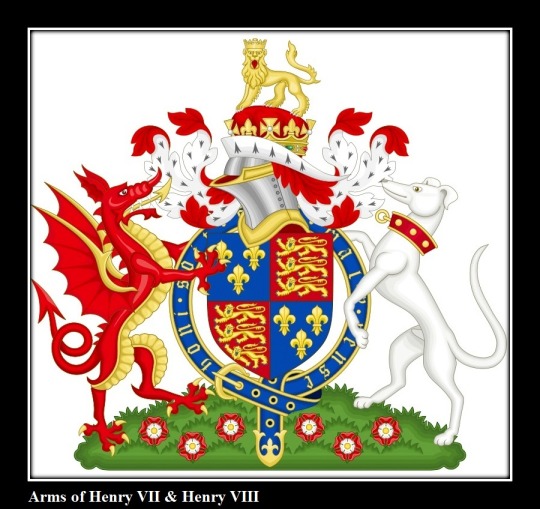

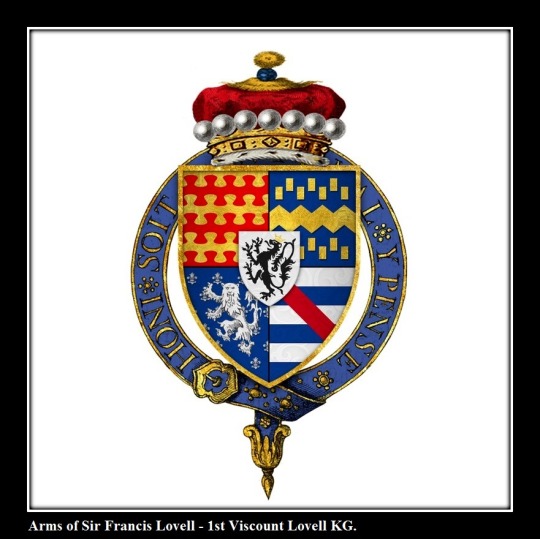
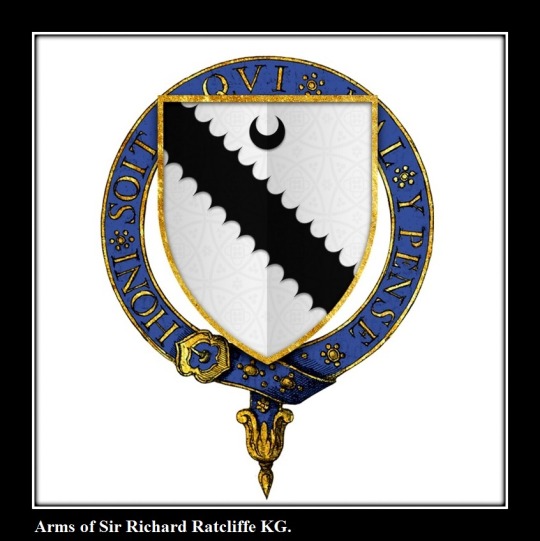
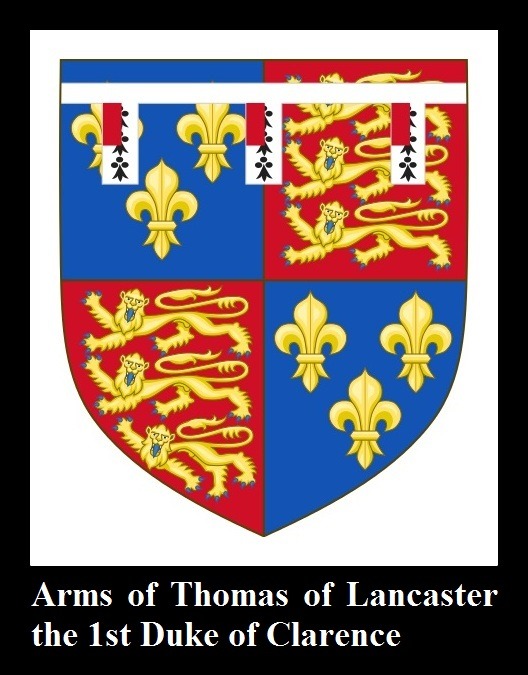
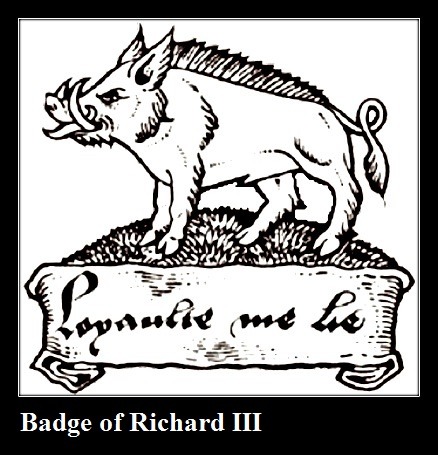
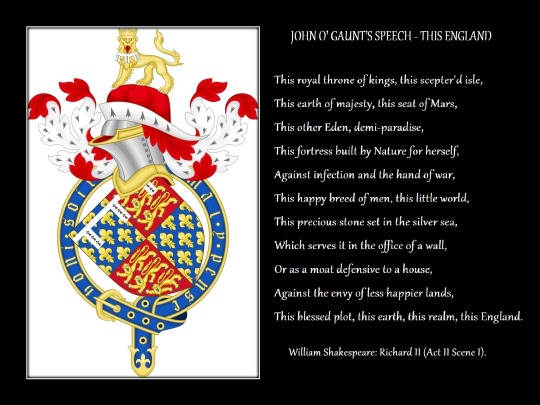

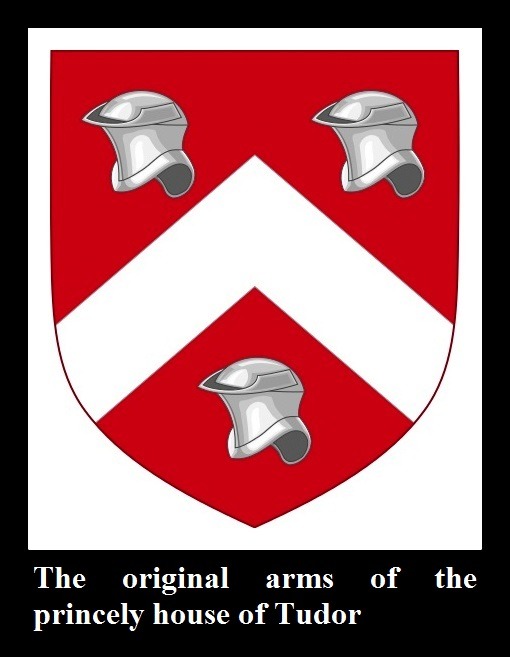
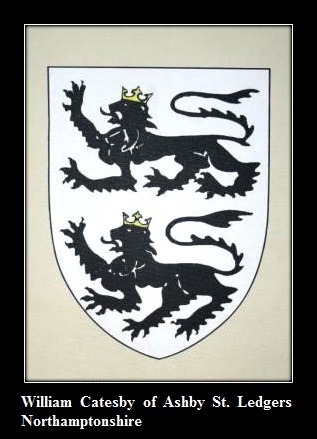
The Catte,
The Ratte,
And Lovell our dogge;
Rulyth all Englande under a hogge.
*****
A poem by Sir William Collingbourne who was later executed for his support of the Tudor House.
0 notes
Text
The Catte, the Ratte and Lovell our dogge.
The Catte, the Ratte and Lovell our dogge.
The Catte,
The Ratte,
And Lovell our dogge;
Rulyth all Englande under a hogge.
*****
Poem by Sir William Collingbourne
Later executed for his support of the Tudor House
*****
Pictures on tumblr –
https://chattering-magpie-uk.tumblr.com/post/665283615254528000/the-catte-the-ratte-and-lovell-our-dogge
View On WordPress
0 notes